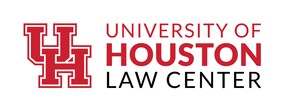HOUSTON, June 3, 2015 /PRNewswire-USNewswire/ -- With the advent of new, technology-driven companies such as Airbnb, Uber, and Lyft that are changing the way people use their property and enabling anyone with a car or a space bedroom to compete with taxis and hotels, local governments are working hard to determine whether and how to regulate what has been called the "sharing economy."
But Kellen Zale, an assistant professor of property law at the University of Houston Law Center, says it will likely take a few years for the law to catch up because of a "mismatch" between existing regulatory structures and the new forms of commercial activities. In a soon-to-be-published paper titled "Sharing Property," Zale writes that the new business model raises a host of questions. These include whether it will prove be a boon to providers and consumers, or if this business model represents what some critics call a "share-the-scraps" economy.
Before those questions can be answered, Zale argues, a "more fundamental question needs to be considered: what does it mean to 'share' property? Are the activities taking place in the sharing economy truly innovative, or are they simply the same existing activities, made superficially unfamiliar by the veneer of technology?"
Zale, whose primary area of research is property law, says the business models of peer-to-peer companies like Airbnb blur the line between commercial and personal, and therefore present a challenge to regulators.
In her forthcoming paper, Zale poses a few fundamental questions: "What is this activity, and how does it relate to how we understand property law?"
Zale says this has been a missing element in the many media stories about the sharing economy in the past few years, particularly about the conflicts between new companies and local governments attempting to impose regulatory schemes.
"People have always shared their property, in the sense of allowing others to use it. But these activities have typically been considered non-commercial or have taken place in the informal economy," she says. "Now, it's happening in a way that is formalized and commercialized, with technology enabling it and tracking it. All this personal information is being stored, and these activities are happening at a much larger scale than ever before."
Zale says a large part of the public discourse about these new kinds of companies are their assertion that they're so "novel" that they can't be regulated.
"And they are correct to the extent that the existing regulations don't work very well with what they're doing. But the underlying activities, such as home-sharing and car sharing, are not so novel that no regulation could ever work," she says. "We need to recognize what about these activities are the same, what about them are different, and how do we adjust our regulations to fit them."
Zale says it will likely take some time for local governments to determine the best approaches to regulating these types of companies, as cities across the country experiment with adapting their existing laws to bridge the gap between what the regulations were originally designed for and the new peer-to-peer models.
"For the next few years, it's going to be a matter of experimentation. But I think it will all shake out," she says. "Cities will start to see what's working and what's not; whether it's a sliding scale for regulations, or separate permitting systems for particular levels of sharing activity, or something else."
"The regulatory response is unlikely to be the same across the country because every city faces different issues," she says. "We're at the beginning of the regulatory process. It is going to require ongoing reevaluation as technology evolves. But that's what the law is equipped to do."
Zale presented this information at presented at the April conference "Sharing Economy, Sharing City: Urban Law and the New Economy" at Fordham University. Her article will be published in the Colorado Law Review Winter 2015/2016 edition.
University of Houston Law Center Media Contacts: Carrie Anna Criado, UH Law Center Executive Director of Communications and Marketing, 713-743-2184, [email protected]; John T. Kling, UH Law Center Communications Manager, 713- 743-8298, [email protected]; or Stephen B. Jablonski, Multimedia Specialist, 713-743- 1634, [email protected].
About the University of Houston
The University of Houston is a Carnegie-designated Tier One public research university recognized by The Princeton Review as one of the nation's best colleges for undergraduate education. UH serves the globally competitive Houston and Gulf Coast Region by providing world-class faculty, experiential learning and strategic industry partnerships. Located in the nation's fourth-largest city, UH serves more than 40,900 students in the most ethnically and culturally diverse region in the country.
About the University of Houston Law Center
The University of Houston Law Center is the leading law school in the nation's fourth-largest city. Founded in 1947, it is a top-tier institution awarding Doctor of Jurisprudence (J.D.) and Master of Laws (LL.M.) degrees. The Law Center is fully accredited by the American Bar Association and is a member of the Association of American Law Schools.
Logo- http://photos.prnewswire.com/prnh/20150327/195030LOGO
SOURCE University of Houston Law Center
Related Links
WANT YOUR COMPANY'S NEWS FEATURED ON PRNEWSWIRE.COM?
Newsrooms &
Influencers
Digital Media
Outlets
Journalists
Opted In




Share this article